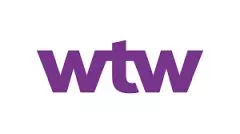- in Africa
U.K. employers have a new obligation to take proactive steps to assess and prevent sexual harassment in the workplace, including by customers, suppliers and other third parties.
Employer Action Code: Act
The new Worker Protection (Amendment of Equality Act 2010) Act 2023 will take effect on October 26, 2024, imposing a new positive legal obligation on employers to take “reasonable steps” to protect their employees from sexual harassment during their employment, enforced by The Equality and Human Rights Commission (EHRC). The EHRC has updated its guidance to help employers understand their obligations under the amended act, including a new section on an employer's preventive duty.
Key details
- The employer duty is anticipatory in nature. Employers must assess the risk of sexual harassment within their business and take reasonable steps to prevent it from occurring, including analyzing any incidence where it has occurred before. If sexual harassment occurs, the employer is expected to take action to prevent it from reoccurring.
- While what is considered reasonable will vary by employer (depending on factors including but not limited to employer size, industry, working environment and employer resources), whether or not an employer has taken reasonable steps is an objective test and will depend on the facts and circumstances of each situation.
- The employer obligation includes taking reasonable steps to prevent sexual harassment by third parties (e.g., customers, clients or suppliers).
- Employers that do not comply with the preventive duty may be subject to enforcement actions by the EHRC. The guidance notes that the preventive duty does not depend on an incident of sexual harassment having occurred in order to be enforceable. Employers found to have breached their preventive duty by an employment tribunal as part of a successful claim regarding sexual harassment where the employer is ordered to pay compensation may be required by the tribunal to pay additional compensation of up to 25% of the ordered compensation.
Employer implications
Employers should review and update, as necessary, their policies and practices on sexual harassment and consider implementing any additional actions (e.g., staff training) to comply with the new requirements.
The content of this article is intended to provide a general guide to the subject matter. Specialist advice should be sought about your specific circumstances.


